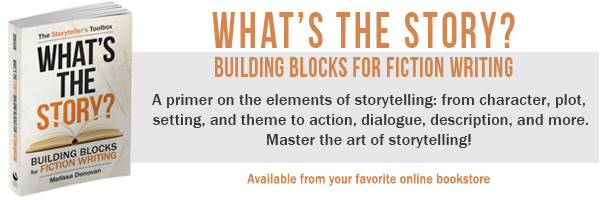There was a time when poetry enjoyed mainstream popularity. People who read poetry weren’t unusual or lurking in some counterculture, hipster coffee house. Ordinary folks read poems, enjoyed poetry, and discussed poetic works.
These days, fiction takes center stage in the world of language arts. We love movies, TV shows, and video games, comic books, and novels. Fans gather online and at conventions to celebrate their favorite stories and characters. And poetry seems to have been relegated to the cultural backseat.
In Shakespeare’s time, entire plays were written in verse. Think about that: entire plays written in verse. Keep in mind that in those days, plays were the equivalent of movies and television (live-action entertainment). Imagine if the lines from films like Titanic, Star Wars, or Game of Thrones were delivered in rhyming verse, and you begin to get an idea of just how wide an audience poetry once reached.
Today, poetry is relegated to precious few; most people who read poetry also write it. The lack of interest in poetry is confounding. You would think that in a one-click world of instant gratification, poetry would be embraced. You would think that in a world where music propels such widespread fandom, poetry would be appreciated. And you would especially think that in the greater writing community, where words are currency, poetry would be celebrated.
But oddly, many writers dismiss poetry. Some say they don’t understand it. Others don’t have the patience for it. A few remark that there’s no money in poetry. The reasons that most writers don’t embrace poetry vary; but the lack of appreciation for the form is omnipresent.
How Poetry Benefits Storytellers
Despite all the competition for our attention by creators of art and entertainment, poetry still manages to find an audience, especially among writers. Storytellers, in particular, reap great benefits from dabbling in poetry, both as readers and creators. Here are ten ways that poetry can inform, inspire, and improve storytelling:
- Language: Poets learn how to be precise and economical with language in order to produce carefully crafted stanzas that resonate clearly, effectively, and emotionally. Composing poetry forces us to think about language so we can find the best possible way to communicate an idea.
- Literary Devices: Poetry teaches us literary devices like alliteration and assonance, and we can then apply these concepts to our prose to make it more rhythmic or memorable and to help it flow better. Many poetic devices translate well to other forms of writing, and they can also open the door to the many literary devices that are exclusive to storytelling.
- Imagery: Most poets strive to paint pictures (or craft videos) with words. We say, “Show, don’t tell.” We learn to choose a poem’s language in such a way that the reader can see the poem in their mind’s eye, clearly and vibrantly. Because storytelling is about crafting scenes, which are visual, this is a priceless skill for storytellers to develop.
- Emotion: The primary goal of many poems is to evoke some emotion from the reader. Most storytellers share that goal. We want readers to feel for our characters, to become emotionally invested in them and their struggles. Through poetry, we learn how to craft language with emotional resonance.
- Musicality: Musicality is probably one of the most underserved elements of fiction writing, often ignored in favor of other story elements. But the flow and rhythm of a sentence in a story can have a profound impact on readers, even if they don’t realize it. Because poetry places a lot of emphasis on musicality, this is a useful skill that can carry over into storytelling.
- Vocabulary: Much of writing comes down to word choice. Writers of all forms want to choose the best possible words for whatever they’re trying to communicate. And while we can certainly tackle word choice in fiction (and non-fiction) writing, poetry, with its laser-sharp focus on language, often does a better job at keeping word choice at the top of a writer’s mind.
- Form and structure: It’s a lot easier to study structure with a one-page poem than with a 500-page manuscript. Poetry also teaches us how to work within established structures when we learn how to write form poetry such as sonnets or haiku. While these skills might only be loosely related to most forms of storytelling, they’re definitely useful in areas of script writing for television, film, or the stage.
- Daily writing practice: Regular writing practice is of utmost importance for any writer. What to do when you’re working on the fifth draft of your novel, or when you’re between books and focused on marketing? Poetry is an excellent way to get your daily writing practice in, because poems can be short and quick to draft.
- Quick reads: As with providing quick-fix writing practice, poetry also provides quick-fix reading. For writers, reading is just as important (if not more important) than writing. But sometimes life gets busy. We don’t always have time to read the next chapter in the novel that sits on our bedside table. Reading a poem a day is the perfect way to get some daily reading in.
- A fuller toolbox: all of these things come together to give storytellers a fuller toolbox packed with writing tools and techniques.
Poetry for Storytellers
Are you a storyteller? Have you ever dabbled in poetry? If so, what did you learn from poetry that carried over into your fiction writing? If you’re a storyteller who has never dabbled in poetry, are you willing to give it a try?






I was a poet before a writer of fiction. I found poetry to be a near relative of flash fiction, or micro fiction, for all the reasons you mention above, primarily, accomplishing more with fewer words.
It is a pity how poetry is becoming an endangered genre among the reading populace. You don’t have to be scholarly or academic about it. Just read what you like and like it for your own reasons. People think it’s okay to be afraid of poetry like they think it’s okay to be afraid of math. Neither is okay. Find your own entry point.
I’ve thought a lot about why poetry has lost its popularity, and I wonder if one reason is that it’s so difficult to sift through the poetry canon and find poems that resonate. It can take someone a long time and a lot of searching to find poets and poems that they connect with. But it’s well worth it!
Great points well put. The leading radio station did broadcast one afternoon play of 45 minutes this year, all in verse. Very well done and extremely easy to follow, we can only hope for more of the same.
That’s fantastic!
I used to write poems more often, not so much anymore, but writing was instrumental in my development as a writer.
I had the same experience, writing mostly poetry when I first started writing. I think that’s true of many writers.
writing poetry…forgot a word in previous comment. 🙂
I like writing rhymes, but struggle with blank verse as I wouldn’t be sure my blank verse wasn’t just prose in lines. I joined a monthly challenge (12 poems in 12 months) to understand poetry more, and though I’ve experimented with blank verse, I still have to have some kind of rhythm in there. My last production, which I intended to write as free verse, ended up occasionally rhyming (more often than not, to be honest) but I managed to make the rhythm freer.
I find I can improve the ‘flow’ and rhythm of my prose when editing stories, but still find these difficult to manage when penning verse without a framework.
Hi Cathy. What a great comment. There’s no rule that says free verse cannot rhyme. I always place rhymes in my free verse; in fact I especially love internal rhymes. I think one of the best ways to gain a natural sense of free-verse flow is to read a lot of free verse. (I like E.E. Cummings, Emily Dickinson, and Maya Angelou, to name a few). Keep it up, and good luck.
I always feel nervous about posting my comments about poetry. I agree with so much of what you say, but it seems to me that most poetry these days.
It seems to me that, while much is poetic, it is, as you say, just prose broken randomly into lines. There is no rhyme nor rhythm, so what makes it a poem?
A few weeks ago I heard something on the radio that I assumed was a piece of prose. Only when we were told it was the poet reading one of her poems did I realise it was a poem.
For me, a poem must have at least rhythm.
I rarely voice my opinions because people these days seem to accept without question that these writings are poems.
I joined a poetry group online. We were told not to discourage the writing of free verse because it helps new poets to write poems. Hidden between the lines is the thought that it’s easier than rhyme and rhythm. Having written both, that is true (although I don’t suppose those writing only free verse would agree.)
An interesting post. I agree that reading and writing poetry helps with writing fiction. Your 10 points are true.
I’ve written poetry since my teens, with a gap for when I was bringing up my children and working. (I did little writing during that time.) I now have 3 poetry books published, and some of my novels contain poetry, too.
Last year, I wrote one poem a day. That was quite a challenge and I’ve only written 3 poems since, all to celebrate the (large number) birthdays of three school friends.
I used to write song lyrics, and I think that has helped with writing my stories.
Song lyrics are certainly similar to poetry, and in some cases, the same.